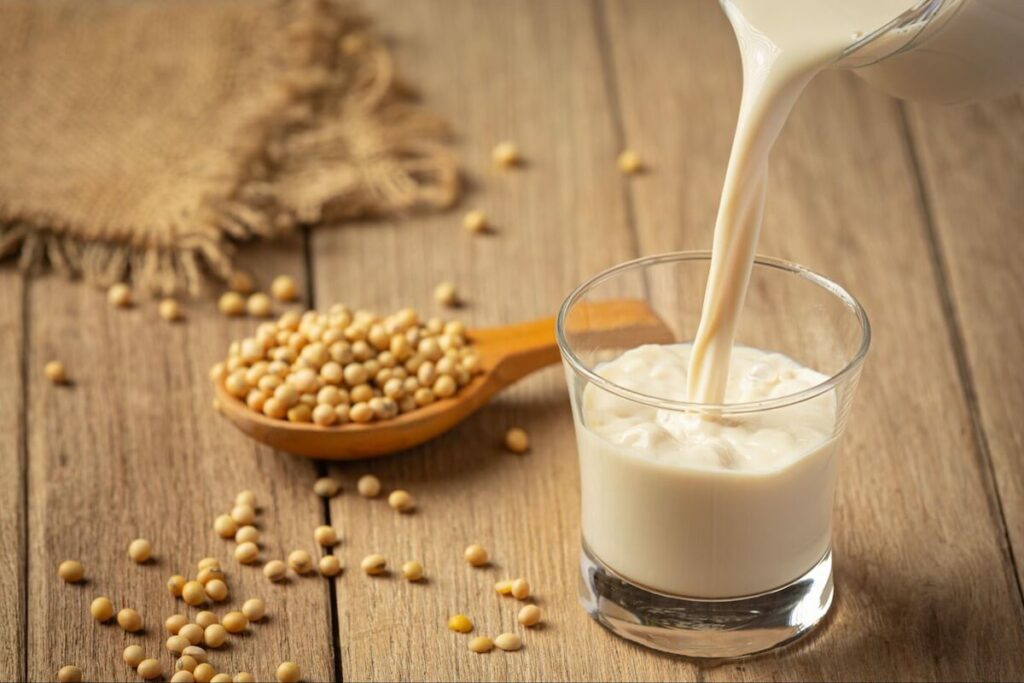For decades, cow’s milk has been a staple at the dining table. To generate higher demand for their product, Big Dairy created the narrative that milk is essential for strong bones at every age. The result is a collective paranoia about what might happen to our bone health – and the bone health of our children – if we don’t drink milk. In a society where milk consumption is conditioned from childhood, the notion of cutting dairy out of your child’s diet can feel like you’re jumping out of a functioning aircraft without knowing if the parachute strapped to your back will open, but if you look at the facts you’ll see that there’s no basis for this fear.
The hard truth about bones and cow’s milk
Starting at infancy and continuing to around age 30, your body is engaged in the task of building a strong skeletal structure. A common misconception about bones is that they’re completely solid. However, while the outer layer of bones is hard, the interior is living tissue, just like your body’s skin and organs, with blood vessels and cells that help reshape them throughout a lifetime by a process called remodeling. Old bone is continuously replaced by new bone, but from childhood through adolescence more new bone is being deposited than removed. If we make our bones strong when we’re young, this can determine our bone health for the rest of our lives.
While milk has been touted as THE beverage to build strong bones, everything that your body needs for this purpose can be obtained from healthy plant sources, without the harmful ingredients (saturated fats, hormones, cholesterol, antibiotics) present in cow’s milk. There’s also mounting evidence that dairy could be harmful when consumed into adulthood. Bone fractures are found to be more common in countries with higher rates of milk consumption, and a 2005 study revealed that cow’s milk doesn’t improve bone strength in children after all (1) (2).
So what can parents do to help their children mitigate the risks of developing brittle bones when they’re older?
Nutrients required for a child to build strong bones
There are two requirements for a child to grow strong bones into adulthood. Getting the right nutrients is one of them.
For your child’s bones to thrive they must get enough calcium and vitamin D (which does not naturally occur in dairy products). Calcium can be found in fortified plant milks, leafy greens, broccoli, tofu, and legumes, among other plant sources. The calcium found in plant sources is more bioavailable than that of dairy. Vitamin D is produced when your skin is exposed to sunlight, and it can also be obtained in fortified plant milks or supplements.
Some other essential vitamins and minerals for bones that can be found in plant sources: Vitamin C (oranges, strawberries, cauliflower), vitamin K (Spinach, Kale, Broccoli), Potassium (bananas, avocados, potatoes), and magnesium (spinach, avocado, bananas).
If your child eats a variety of fruits and vegetables they’re more likely to meet their nutrient requirements.

The importance of weight-bearing exercise
Bones get stronger the more we use them. While your child must get the right nutrients for their bones, weight-bearing exercise—this includes activities in which your feet and legs carry your weight—is also required. The right exercises can make bones denser by building new bone tissue (3)(4). Exercises that can be beneficial for children are running, dancing, and jumping rope, to name a few.
Plant milk instead of cow’s milk
If you’re seeking a beverage option to replace cow’s milk, soy milk is recognized as nutritionally equivalent to cow’s milk in the Dietary Guidelines for Americans. It’s high in protein and great in smoothies or over cereal.

With a diet rich in calcium-dense vegetables, fruits, and plant-based milk alternatives, and a consistent weight-bearing exercise routine, your child can grow up to have strong healthy bones.
To learn even more about maintaining strong bones, check out these essential tips.
Strong Bones & Osteoporosis Prevention
Looking for some terrific dairy-free swaps for your child? Click the link below!
Kids Guide To Dairy-free Alternatives








